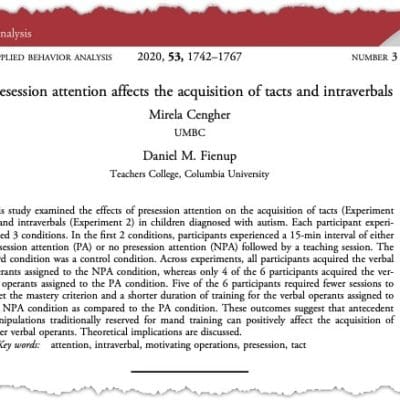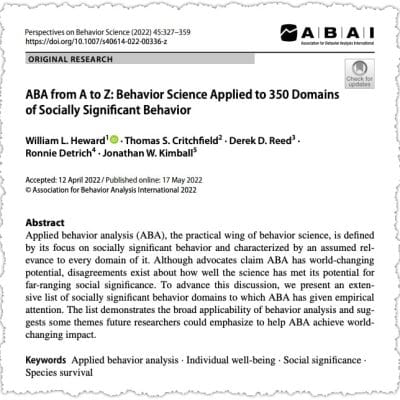Improving the Lives of Students with Autism by NOT Focusing on their Disability
Morten Haugland
The Haugland Learning Center (HLC) employs the science of human behavior to enhance educational outcomes. This presentation from the 2017 Michigan Autism Conference emphasizes the importance of professional values and philosophy beyond standard treatment approaches, critiquing the reduction of ABA to mere diagnosis-based methods. It demonstrates how rejecting excuses linked to autism diagnoses can lead to significant improvements in both academic and social skills, supported by data from the implementation of the Morningside Model of Generative Instruction.
This product has been discontinued.
You may also like…
-
Article Quiz

2.5 BCBA CEUs
Presession Attention Affects the Acquisition of Tacts and Intraverbals
Mirela Cengher & Daniel Fienup$24.99 Add to Cart Quick View -
Multimedia Tutorial

7 BCBA CEUs
An Introduction to Relational Frame Theory (RFT)
Eric J. Fox4.55 out of 5(503)$69.99 Add to Cart Quick View -
Interactive Video

1.5 BCBA CEUs
B.F. Skinner on Education
B.F. Skinner4.97 out of 5(31)$14.99 Add to Cart Quick View


